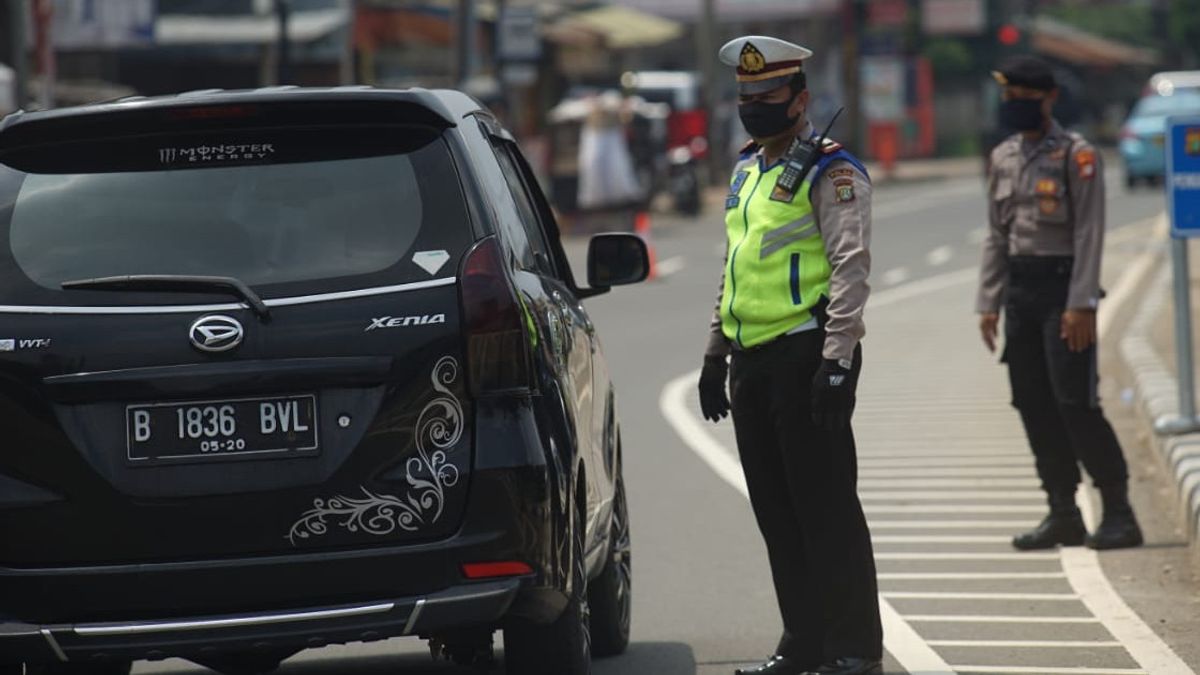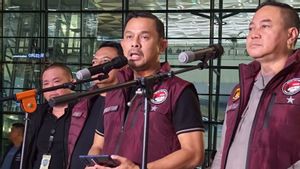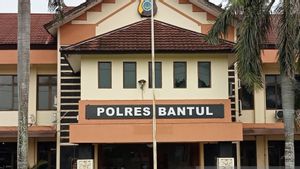JAKARTA - The government has prohibited people in big cities from returning to their hometowns. This is a further effort to prevent the spread of the corona virus or COVID-19 which is increasingly widespread. The National Police also took part in the plan and began designing a scheme for road closure.
In this scheme, all out-of-town access will be closed. The toll roads to the arterial roads will also be sealed so that no one will leave the city to return to their hometowns.
The Head of Corruption Eradication Commission for the National Police, Kombes Benyamin, said that the plan to prohibit going home applies to all types of vehicles, both private and public. In its application, those who are caught leaving the city will be asked to return to their place of origin.
"There are also national roads, arteries are also there. In each regency, there are certain points on the toll road, but if it is outside the toll road, in each regency there will be barriers," said Benyamin, Tuesday, April 21.
However, the implementation or enforcement mechanism, said Benyamin, could not be conveyed in detail. The reason is that the regulation is still in the process of formulating several related agencies such as the Ministry of Transportation.
However, this regulation will not apply to several vehicles carrying staples and fuel oil (BBM). This is intended to keep the wheels of the economy in order.
"So, there will be lots of regulations that are still in the works, still under discussion so that the people stay at home," he said.
In addition, this rule will not apply to people who want to return to their hometowns for very urgent reasons. However, they must first obtain permission from the central COVID-19 Handling Task Force.
When they do not have the permit and continue to insist, they will get into trouble during the trip. This is because road blocking will be carried out in almost every region or district.
"There must be a permit from that, if there is a permit from that we can skip it. But if there is no such permit, in the middle there will be other barriers. For example, BBM could not be filled in the middle of the trip," he said.
President Joko Widodo has taken the decision to prohibit people from returning to their hometowns in order to prevent the spread of COVID-19 in various regions. After taking this policy, Jokowi ordered his ranks to prepare for the ban and its impact in the future.
"At this meeting I would like to convey that we will prohibit all homecoming. Therefore, preparations related to this have begun to be prepared," said Jokowi while opening a limited meeting to discuss public anticipation which was broadcast on the YouTube account of the Presidential Secretariat, Tuesday, April 21. .
This policy is not only based on survey results but also because currently assistance for people affected by COVID-19 economically, such as basic food assistance and social assistance including pre-employment cards have been distributed.
In addition, the Acting Minister of Transportation (Menhub) who is concurrently the Coordinating Minister (Menko) of Maritime and Investment Luhut Binsar Pandjaitan said that this ban will come into effect on April 24.
"The homecoming ban is effective starting from Friday, April 24, 2020. There are sanctions, but for the application of sanctions that have been prepared, it will be effective starting May 7," said Luhut.
This prohibition, continued Luhut, was taken after the Ministry of Transportation conducted a survey three times and the last one was held on April 15. As a result, around 21 percent of people still want to go home during the pandemic like now, despite the socialization.
The homecoming ban is enforced for the Greater Jakarta area and other areas that are included in the Large-Scale Social Restrictions (PSBB), as well as the red zone for the spread of COVID-19. Meanwhile, the implementation, said Luhut, will be regulated by the regional government.
"The ban on going home will not allow the traffic of people to go out and enter the area, especially Jabodetabek. However, logistics is still justified (entry), it is still permissible for the flow of people inside Jabodetabek or what is known as agglomeration," he said.
The English, Chinese, Japanese, Arabic, and French versions are automatically generated by the AI. So there may still be inaccuracies in translating, please always see Indonesian as our main language. (system supported by DigitalSiber.id)










